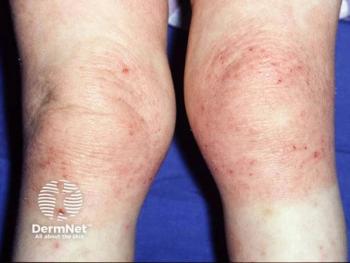
Clinical Perspectives: Addressing Unmet Needs in Topical Atopic Dermatitis Treatment
James Del Rosso, DO, Brad Glick, DO, MPH, FAAD, and Lisa Swanson, MD, FAAD, address the demand for non-steroidal treatment alternatives while navigating the individualization of data interpretation regarding these treatments.
Episodes in this series

This is a video synopsis of a discussion involving James Del Rosso, DO, dermatologist in Las Vegas, Nevada, Brad Glick, DO, MPH, FAAD, a principal investigator at GSI Clinical Research in South Florida, and Lisa Swanson, MD, FAAD, a dermatologist and pediatric dermatologist in Boise, Idaho.
The roundtable discussion focuses on the urgent need for effective non-steroidal options in treating atopic dermatitis (AD). Participants share insights and perspectives on various therapies, with a particular emphasis on topical ruxolitinib, a Janus kinase inhibitor approved for AD.
Dr. Glick highlights the comprehensive nature of the discussion, acknowledging the importance of considering different therapies while addressing pediatric dermatology concerns. Dr. Del Rosso underscores the significance of addressing the primary unmet need in AD: itch. He emphasizes the importance of therapies that not only improve the skin barrier but also effectively reduce itch, ultimately benefiting AD patients.
Furthermore, the panelists discuss the challenges of using primary endpoints in trials that do not directly address itch, despite its paramount importance in AD management. They stress the need for better understanding and addressing patient-reported outcomes, particularly regarding itch severity and sleep disturbances.
Overall, the discussion provides valuable insights into the evolving landscape of AD treatment, highlighting the importance of addressing itch and the need for effective non-steroidal therapies.
Video synopsis is AI-generated and reviewed by Dermatology Times® editorial staff.
Newsletter
Like what you’re reading? Subscribe to Dermatology Times for weekly updates on therapies, innovations, and real-world practice tips.















